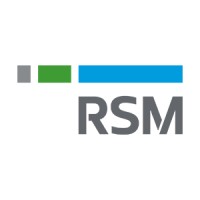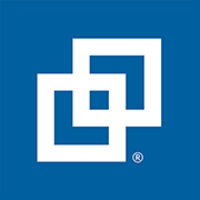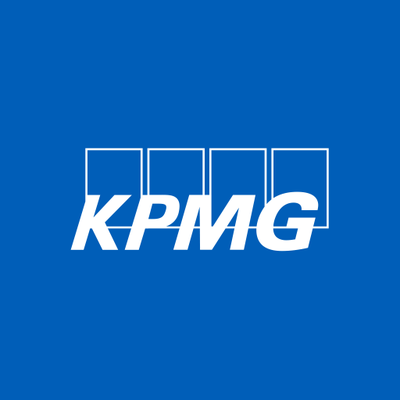Groupon is a multi-billion dollar company that connects businesses with customers on a local level. It offers discounted prices for great products and services, which makes it a leader in e-commerce. Groupon offers internships and jobs around the United States, with it’s headquarters in Chicago and a rapidly growing office in Palo Alto.
Phil Ramsbottom began interning with Groupon soon after his graduation from Beloit College and now works as a City Planning Analyst. He manages the daily deals pipeline for 13 small regional markets across the Midwest and Southeast. Below are Phil’s answers to readers’ questions regarding internships, careers at Groupon and much more.
Phil Ramsbottom: Hey everyone! I’ll be here for the next hour or so to answer any questions you have. Feel free to follow up on any of my answers with new questions as well!
Radha Jhatakia: Working at Groupon sounds fun. What do the responsibilities of a City Planning Analyst entail? Also, what kind of internship did you have that led to this position?
Phil Ramsbottom: Both on or off the clock, I’d say that Groupon really is a fun place to work, and not just in the ‘oh, this office has a tiki bar’ sense (which it does), but also in that you have room to be creative in your work while also collaborating with a young and talented group of colleagues. As for my specific role, City Planning Analysts are usually framed as the last vetters in the deal approval process. They work with both inside and outside sales reps and managers to optimize all aspects of an individual deal’s structure – the price point, the discount, the margin, the number of options on the deal, the number of units available – in an effort to make it a compelling offer for Groupon, Groupon users and Groupon merchants. Most “CPs” manage the deal pipeline for a few larger markets or 10+ smaller markets (I’m of the latter breed) and are usually approving/rejecting 20+ deals per day while also being mindful of market schedules moving forward.
Angelica: Turning your internship into a job is a great achievement!I’m wondering what your schedule looks like as a City Planning Analyst? I also recently finished college and am easing into the working world. What is your work load usually like and how has it changed since you were an intern?
Phil Ramsbottom: Hey Angelica! My schedule as a City Planner includes both set daily checks and more fluid blocks of time to work on projects unspecific to the actual CP role. Each day I look at a report that shows impending deals and cross check that against the Groupon website to ensure that any deal that’s planned to run is actually going to be sent to subscribers. Most of my time, however, consists of working with reps to structure deals; I’m approving or rejecting contracts when they come to me and fleshing out the details of each contract prior to the actual approval – deal ‘pre-qualification’ – in an effort to optimize it based on the service offering, the merchant and the market.To keep this from turning into an even longer essay response, I’ll talk about my thoughts on making the most of an internship in the answer to Amanda’s question!
I’d say 80 to 90 percent of my typical day is allocated to staying up-to-date on deal performance in my markets, running reports that help to identify what works and what doesn’t, and then actually interfacing with people from all the departments that have a hand in each contract (from initial merchant contact to the deal being live on the site). Outside of regulating the deal pipeline, I’ve been reaching out to others about helping with smaller, one-off projects that can be as broad in scope as highlighting all food and drink merchants that haven’t been contacted in the last 30 days, or as specific as constructing an Excel function to find a specific text string in a SalesForce field. The main difference between now and when I started is that it takes me way less time to turn around contracts now; for the first few weeks it was taking me 10 to 15 minutes to evaluate a deal structure and respond with recommendations but now I’d say that time has been cut to around three to five minutes. So… yay for that!
Amanda Salcido: When you were interning, what are things you think you did that made you stand out from the other interns?
Phil Ramsbottom: Hi Amanda, great question! In all honesty, getting in front of the right people at the right time can be a game of chance, but just like everyone else who’s lent professional advice to you has probably said, a proactive spirit is invaluable.
If there are aspects of the business that play a part in your day-to-day life but that you don’t have a direct hand in, reach out to someone on that team and ask them to walk you through what they do. When people ask if you can help with something, say yes, and when you’re done ask if you can help with something else or if there are latent projects that people haven’t worked on in a while.
If there are regular reports or materials that circulate daily or weekly, try to construct something similar, add pertinent metrics or written summaries, and show it to someone to get feedback. I’ve sent emails to others that are literally summaries of my thoughts on the business. I’m in no position to change many of the high-level problems that I see and think I have an effective solution for, but it shows that I care about those things.
Most importantly though, never stop asking questions — never. It’s really a simple formula: if you’re always extending yourself while simultaneously showing passion for the business you can’t help but stay busy and stay on the mind of people that make the important decisions at your company. Also, be courteous, be polite and be prompt!
I’m going to take a high-level approach to answering this. I can’t stress enough the importance of being intellectually curious in any position – internship or full-time. This is definitely something that’s more inherent in some, but it’s by no means “hard” to show legitimate interest in both your work and the work that others are doing. This may seem like common sense, but even after only being in the workforce for about five months, I’ve played witness to so many people who just coast by each day. Don’t get me wrong, taking your foot off the accelerator every once in a while (multiple times per day even) is just as integral as forcing yourself to learn new things at every turn and to inquire into aspects of the business that are foreign to you, but there’s really no point in getting into a routine that handcuffs you from adding more value.
Bert Connelly: Thanks for taking the time out of your day to answer some of our questions. What were you looking for in an internship? Did you take the internship that you thought would give you the best chances at a full-time job? Did the company’s mission factor into the decision, or were you most interested in the skills you would gain through the experience? Did name recognition play into the process? Thanks again.
Phil Ramsbottom: Hey Bert, thanks so much for your question! I definitely weighed the probability of a full-time offer, but I think that that mindset can be crippling. Regardless of the position you enter into – full-time or not – you should be applying yourself, challenging yourself, looking for ways to grow professionally, identifying pain points in the company and proposing steps to innovate. I guess just allowing your work to speak for itself, seeing as in the grand scheme of things that’s the only variable you can really control.
Groupon’s mission and the skills that I believed I would gain were on the list for reasons to apply in the first place, so those really didn’t weigh in the actual decision – ultimately it was one of the only offers on the table and it hit all the marks in terms of traits that I was looking for in a company.
Like many people looking for a job after graduation, I wasn’t incredibly picky in my search for potential positions. What I tried to focus on were companies that would afford me with the opportunity to 1) work alongside bright people, 2) feel connected to the product and the users of that product, 3) develop new skills while also refining those that I already had, and 4) work at the intersection of tech and business,






